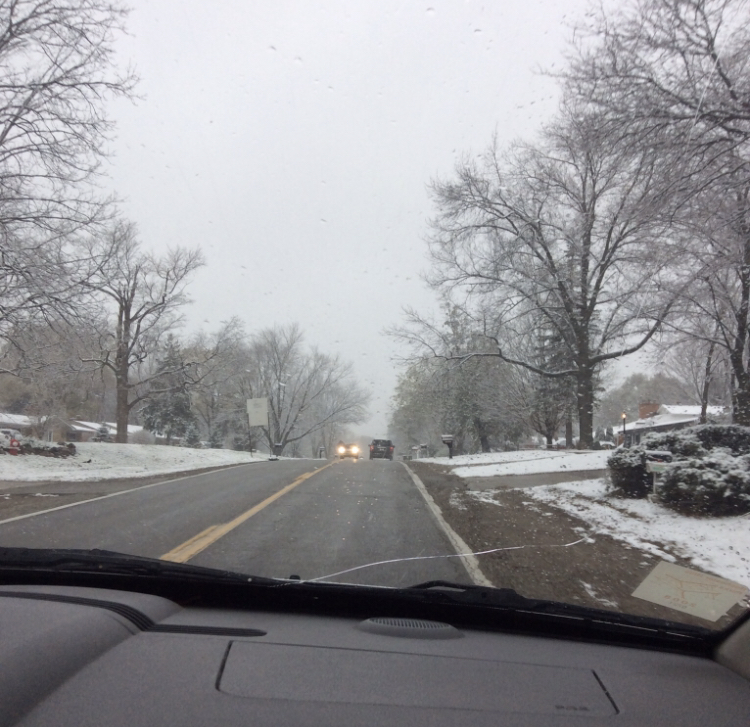Slow down, pay attention on wintery roads
Police officer provides tips to stay safe while driving
December 17, 2020
According to the Federal Highway Association, 39% of all weather-related car accidents occur because of some type of snow, ice, or slush. Even though the ratio between rainy and snowy weather days favor rain heavily, this is because snow and ice are so slippery and dangerous.
There are many things you can do to combat the dangers of driving in the snow, but the biggest one is to pay attention. Most accidents that occur, because of weather or not, are caused by distracted driving. Whether it’s texting, changing music, talking to friends, or any of the other countless potential distractions, any off them can take your eyes off the road and into the hospital.
Utica High School Resource Officer Jake Lukas, of the Shelby Township Police Department, has many tips on how to be better prepared when you have to brave the elements and drive in the icy conditions.
“My first recommendation that I have is to fit winter tires to your car, if you can,” Lukas said. “They provide a lot more traction than your typical ‘all-season’ tires.”
Lukas also has tips on what to do while driving.
“As far as driving tips, the biggest thing is to SLOW DOWN,” Lukas said. “Accelerate more slowly, leave more room between yourself and the car in front of you, and begin to brake sooner than you normally would so that if you don’t have as much traction you have more time to stop.”
There are many different ways that an accident can happen on the snow, whether it is just one car spinning out and losing traction, or if it is someone sliding into another person. But according to Lukas, the most common accident during the winter is someone getting rear-ended.
“Most car accidents that we see in the winter are caused by people tailgating the car in front of them,” Lukas said, “driving too fast and losing control on slippery roads, and waiting too long to start slowing down for an intersection or stop sign.”
Driving in the snow has so many potential hazards, but there are many ways to combat them. Keep these tips in mind next time you brave the elements to stay safe.













